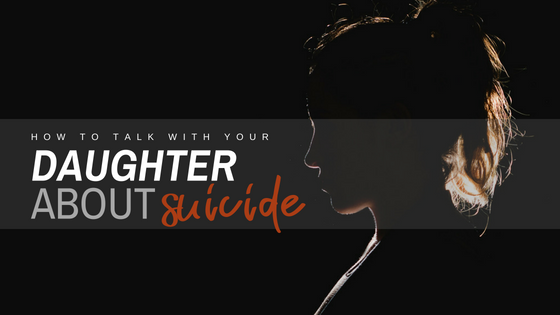20/20 Hindsight: One Dad's Honest Reflections Looking Back (Guest Blog)
Michelle Watson
Due to the vulnerable nature of this guest blog, I’m choosing
to keep the identity of my courageous friend anonymous.
It is with gratitude that I am sharing his honest reflections as a
father whose daughter paid the price for some unwise decisions
he made a few years ago. He described the process of writing
this as “actually therapeutic even though I had to pause a few
times as tears started to take over me,” which makes the gift of
his disclosure all the more valuable. I trust his honesty will lead
you to do the same. ~ Michelle
Perspective is a funny thing. We often seem to have a more unique and revealing perspective the older we get and after mistakes you wish you could take back. This is an account of my personal perspective that I wish I would have realized before the heartache myself and my family experienced.
As I was in my bonus room one day getting in a workout recently, I happened to look on our wall where my kid’s K-12 composite school pictures are displayed. I always enjoy looking at them and wish I could turn the clock back to the days of recent tooth fairy visits and self-inflicted haircuts.
But today was different.
As I looked at my daughter’s sweet middle-school face, I started to break down. Tears poured down my face as I was reminded of how selfish I was during those impressionable years of hers. I recall the self-absorbed focus I had on having an affair and telling myself that being happy was what I deserved. I had no clue how my selfishness was going to send me on a journey I’d never wish on any parent---more on that in a moment.
Once my unfaithful actions were discovered, the decision was made to move out and find an apartment. I continued to justify my selfishness by trying to spin happiness to my kids as they helped me move and decorate my cool (he says sarcastically) one-bedroom residence. Little did I know the damage I was unintentionally doing to my sweet 11-year-old whose world was being shattered in front of my blind eyes.
As the next couple of years went on, the distance between myself and my daughter (and son) was evident. They saw the broken woman I was responsible for creating in their mom, which led to the indifference they showed me as I continued to live the double life of expressing my wish to reconcile while having my empty words be reflected in my actions.
As my wife and I tried to put together the pieces of our relationship, it became evident that our daughter was making horrible choices to mask her pain, which included distancing herself from me (not to mention always making sure that everyone knew that her once-labeled hero--me--was a complete asshole) while continuing to head down a path of complete destruction. It was at that point we knew we had to do something---and fast! We made a seemingly unfathomable decision to send her to a boarding school in the middle of nowhere Montana in hopes we could save her from walking out our door and never seeing her again.
The day the transport service drove out of my driveway with our daughter in the backseat was the day I experienced the most pain my heart has ever felt.
Unable to talk and barely breathe as I laid lifeless on her bedroom floor, I was overtaken by a heart-wrenching sob that was uncontrollable. I could only wonder how our lives ended up in this place.
Fast forward to today---after years of incredibly hard work by both my wife and I, along with our daughter, I’m beyond thrilled to say we came out on the other end stronger than ever as a family.
Looking back now, I’ll admit that although this was painful process, it was a good drill for me to listen to my daughter without rebuttal as I let her know her feelings were valid. I had to learn to be completely vulnerable without giving her reasons for why it happened and let her tell me what all of this did to her without being defensive. What I discovered is that as I began to let my guard down, I became less concerned about protecting myself and more concerned that she received everything I could possibly give her in her healing process. I committed to be completely at her disposal as she gave it to me from her most raw, open, and critical place.
As I tie this experience all together, I think back to the day I referred to earlier where I was looking at the school pictures on my bonus room wall. Something came over me as I looked at my daughter’s sweet face where I just started weeping and thinking about what our family experienced.
That’s when I picked up my cell phone and called her. I could barely speak, and she could sense it. She asked what was wrong and I told her I just wanted to call and apologize for the heartache I caused those years ago. In her soft graciousness she said, “Dad, you’ve apologized enough, and I’ve already forgiven you. I love you and our relationship is amazing!”
I can honestly say there was a day when I thought I’d never hear those words from her again.
Perspective is a funny thing, indeed.
If I had the opportunity (and knowledge) to stop my old self from making the mistakes I did, of course, I would---as would most of us. But since I can’t, I can only strive to be my best self, to love those close to me, and continue to trust God with the darkest of situations.

















